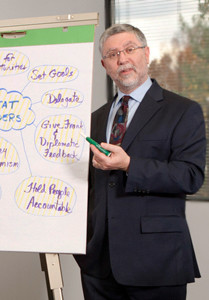Team Building and Collaborative Cultures: We assist leaders to energize their teams, set the right goals, build practices of collaboration, and inspire innovation.
 Our many years of organization consulting and management development demonstrate that the essential skills and knowledge for teamwork are essential – and learnable. They are based on concepts of group dynamics, leadership strategies and behavioral flexibility. They can be learned in sessions that are carefully guided to foster experimenting, getting candid feedback and receiving support for expanding one’s behavioral repertoire, and getting real work done. We believe that team building should be focused on concrete business issues, not (as is commonly done) on games or abstract exercises.
Our many years of organization consulting and management development demonstrate that the essential skills and knowledge for teamwork are essential – and learnable. They are based on concepts of group dynamics, leadership strategies and behavioral flexibility. They can be learned in sessions that are carefully guided to foster experimenting, getting candid feedback and receiving support for expanding one’s behavioral repertoire, and getting real work done. We believe that team building should be focused on concrete business issues, not (as is commonly done) on games or abstract exercises.
What Team Building Is:
TIME
- To focus on both business issues and team effectiveness
- To step back from the daily routine and to deliberately create a new set of team work practices
- To invest in mulling over complex or ambiguous issues before decisions must be made or actions taken
LISTENING
- To hear each other with new “ears”
- To explore members’ views, feelings, needs, concerns, and values with curiosity and respect
- To discuss important areas of agreement and disagreement, and come to practical resolutions
UNIFYING
- To collectively endorse a guiding vision and mission for this team
- To agree to what this team will do and how it will do it
- To clarify each member’s role and accountability for the whole team’s success
- To set action plans and time lines
- To recognize progress and success
What Team Building is NOT:
- Being nice during a retreat
- Pretending to be participatory
- Manipulating people to be inappropriately open with personal feelings, resentments or fears
- Just “getting it off your chest!”
- Forced feedback sessions
- “Cutesy” games or overly personal group exercises
What Teams Can Do For Themselves:
- Focus on successes and progress, not just problems or issues. Begin every meeting with an exchange of “good news” since the last team meeting. Examples are: projects completed, problems handled, special contributions and achievements, positive feedback from customers
- Use an easel and flipchart or white board at meetings to record the issues, decisions, action plans, due dates and individual accountabilities so everyone can stay focused
- Raise team issues in team meetings, not around the water cooler, in order to create a climate of open communication and decision-making
- Periodically – at least twice a year – hold a “taking stock” meeting to discuss how the team is doing overall. Have one of these meetings away from the office
How We Can Assist at a Team Meeting:
- Serve as an advocate for the interests of each member individually and for the team as a whole
- Free the leader to participate fully
- Challenge members to really listen to each other, including diverse viewpoints
- Provide on-the-spot mini-training in leadership and teamwork skills
- Present theories and models to clarify what is happening in the moment
- Coach leaders privately on how to handle difficult team issues
Our Certifications:
- Myers-Briggs Type Indicator
- Drexler-Sibbet Team Performance System
- Thomas-Kilmann Conflict Modes
- Emotional and Social Competency Inventory (ESCI)
